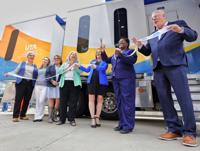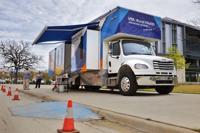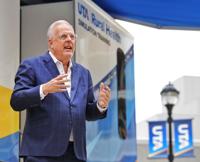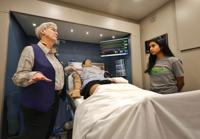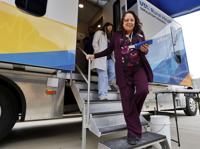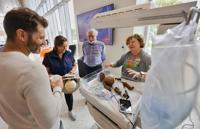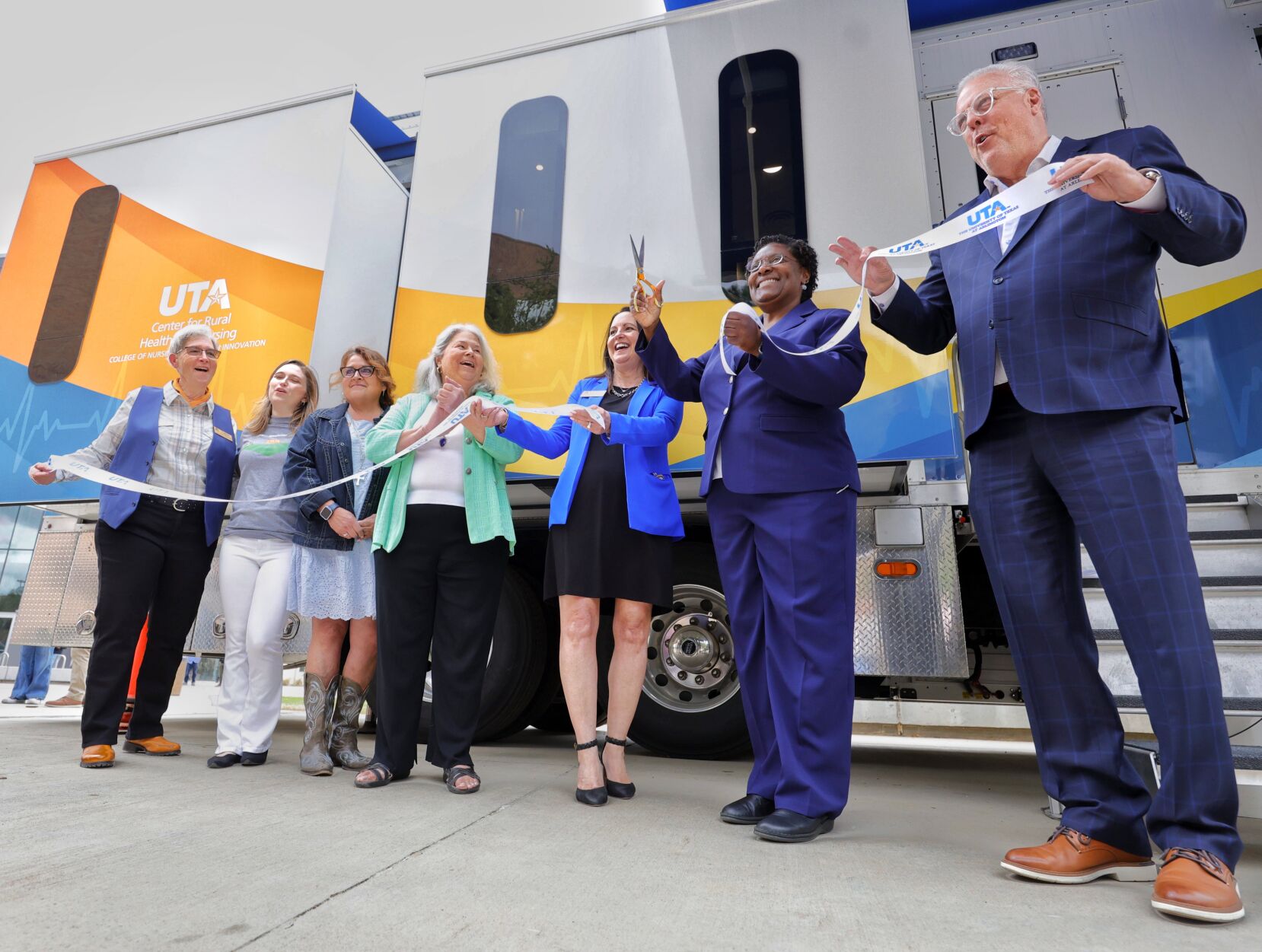
The College of Nursing and Health Innovation’s Center for Rural Health and Nursing Mobile Simulation Lab revved up its engine at its official launch party Friday.
The simulation lab provides nurses in rural areas the opportunity to practice critical patient care skills in a controlled environment, to better understand medical situations before they encounter real-life scenarios, according to previous Shorthorn reporting.

Tanya Sudia, CONHI chief nursing officer and interim dean, said the lab will not only provide different simulations in remote areas, but partner with hospitals in those communities as well.
Aspen Drude, Center for Rural Health and Nursing manager, said she’s excited to have the mobile simulation lab, calling it her 'baby' after years of preparation.

“This is something I’ve been getting ready for for literally years,” she said. “There’s a lot of opportunity here, so we’re just really excited for that.”
Drude said their first stop is Faith Community Hospital in Jacksboro, Texas, about an hour and 30 minutes away from campus. She said the goal of this first visit is to conduct a needs assessment, create tailored simulations and run a pilot training program to get feedback and improve the program before moving on to the next location.

During the tour of the simulation lab, Jill Whitfill, CONHI assistant professor of practice showcased the lab’s two mannequins. The first, known as "MamaAnne," is used for obstetric emergencies, simulating a variety of labor and delivery complications.
It can stimulate a scenario like hemorrhaging, where student nurses can practice applying pressure to stop the bleeding while monitoring vital signs on the electronic fetal monitor. MamaAnne also allows for full code scenarios, including intubation and cardiac events.

The second mannequin is used for trauma scenarios, simulating situations like compound fractures. It helps train students in Texas’ rural areas, where nurses are often generalists.
Whitfill said that the lab’s mannequins, equipped with 360-degree cameras and microphones, allow for realistic, interactive training sessions. These features allow teams to record and review their performance, providing valuable feedback to improve care in real-world rural emergency situations.

Sudia said that she’s most excited about obstetric deliveries, which cover emergencies including complications during or immediately after delivery. While these situations are rare, she said they are important for training nurses and health care providers to ensure the best possible patient outcomes.
Alexandra Amaya, public health graduate student, said the lab will help nursing students learn about medical situations in rural communities, and build confidence before facing real-life situations.
“Rural communities do have less resources than we do here,” Amaya said. “I feel like, overall, as a health education resource, it would really benefit their learning overall.”
@taylor._.sansom








